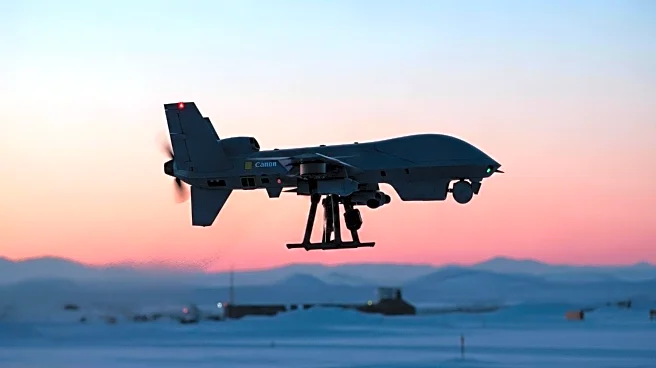What's Happening?
Russia is engaging in provocative actions outside Ukraine, deploying drones and jets into NATO airspace. These actions are seen as a strategic move to weaken NATO's collective defense by forcing the alliance to choose between taking action or appearing indecisive. The incursions, which include airspace violations over countries like Poland and Estonia, are part of a broader strategy of 'reflexive control,' where Russia aims to make its adversaries self-deter. This approach is designed to undermine NATO's credibility and political cohesion without engaging in direct military confrontation.
Why It's Important?
The significance of Russia's actions lies in their potential to destabilize NATO and weaken transatlantic solidarity. By creating a narrative of constant threat, Russia aims to erode the political cohesion of NATO, particularly the mutual-defense guarantee under Article 5. This could lead to a scenario where NATO's ability to respond to actual threats is compromised, thereby emboldening Russia to continue its aggressive posture. The psychological and political warfare being waged by Russia could have long-term implications for European security and the global balance of power.
What's Next?
NATO faces the challenge of responding effectively to Russia's provocations without escalating tensions further. The alliance may need to reassess its strategic posture and consider more robust actions to deter future incursions. This could involve increased military readiness and stronger political unity among member states. The situation also calls for a reevaluation of NATO's communication strategies to counter Russia's narrative and maintain public confidence in the alliance's defensive capabilities.
Beyond the Headlines
The ongoing provocations highlight the complex nature of modern warfare, where psychological and informational tactics play a significant role. Russia's strategy of reflexive control exploits the political and social divisions within NATO countries, aiming to weaken their resolve. This underscores the need for NATO to not only focus on military preparedness but also on strengthening political cohesion and public resilience against disinformation campaigns.










